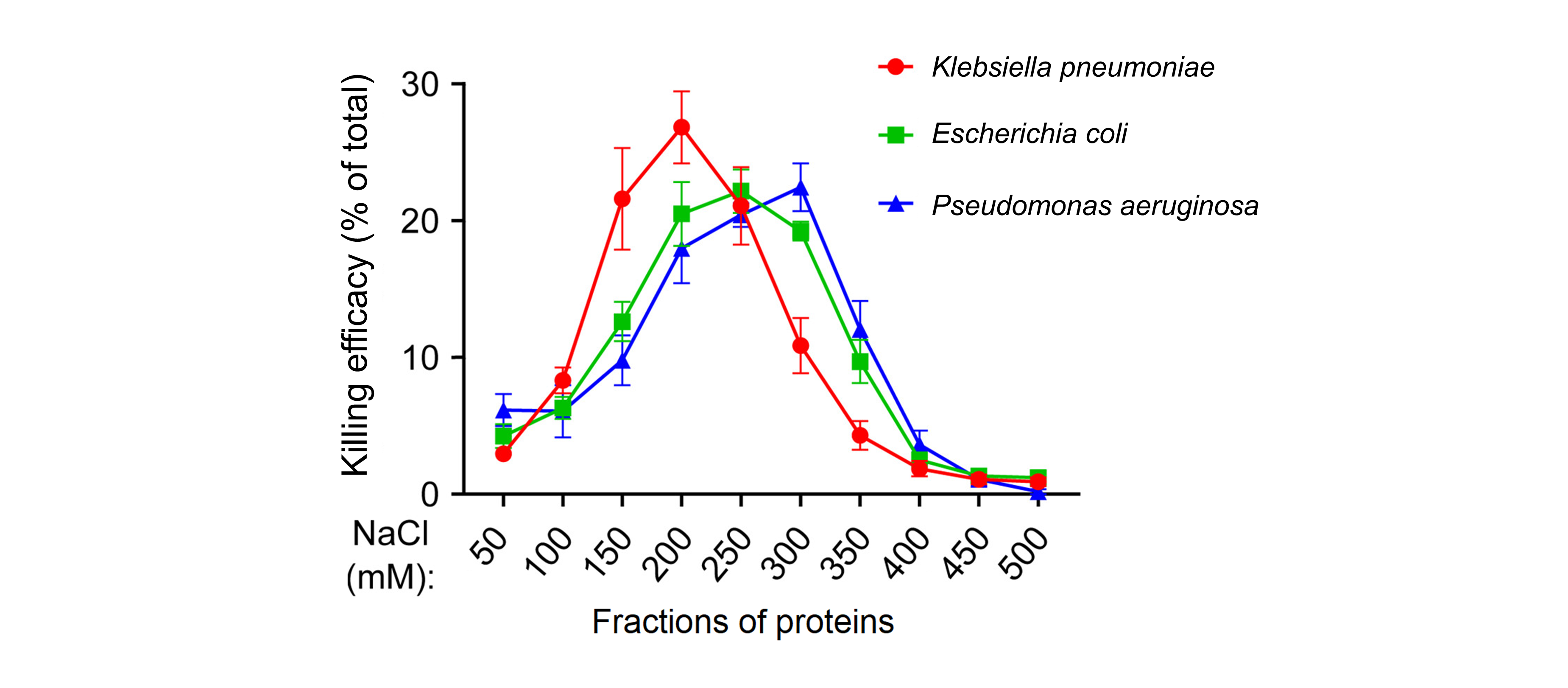The universal weapon against bacteria: diversity
Our immune system is a complex defense network where specialized cells eliminate bacteria, protecting us from infections. Over decades, scientists have identified numerous antibacterial proteins able to destroy bacteria. However, much remains unknown about how specific these proteins are to different types of bacteria, leaving significant gaps in our understanding of this critical process.
Antibacterial proteins are surprisingly not universal
In a recent study published in the journal mSphere, researchers from the laboratory of Prof. Pierre Cosson tested the effectiveness of different components on bacteria. They extracted protein mixtures from the immune cell model Dictyostelium discoideum and tested them against five different bacteria. Their in vitro experiments revealed that different protein mixtures had different efficacy against bacteria (see the example of three bacteria in the Figure below), indicating that there is no universal weapon that kills all bacteria, but rather specific weapons for each bacterium.

Different mixtures - fractions - of proteins have different killing efficacy against three bacteria (Klebsiella pneumoniae, Escherichia coli and Pseudomonas aeruginosa) as shown by the shifted peaks of the curves. © adapted from the Figure 6 in Munoz-Ruiz et al. 2024. mSphere.
What’s next?
Not only did this study highlight the lack of universal antibacterial mechanisms capable of targeting all bacteria, but it also generated a list of new, specific proteins involved in bacterial elimination. Researchers are now planning to investigate in vivo the mechanism of action of the most promising ones.
